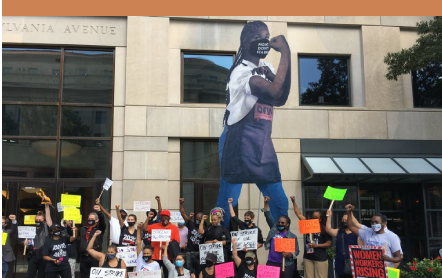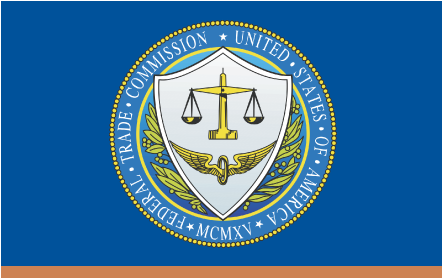Converge for Impact fosters, supports, and promotes collaboration between workplace law academics and attorneys around emerging issues of research and legal strategy. Converge believes that professors in the classroom and practitioners in courtroom form a shared community of workplace law experts. By creating pathways for dialogue and exchange, we aim to operationalize workplace law theory and cultivate practice-relevant scholarship. Together we can advance workplace law research and improve the state of workplace law.
Connect with Converge

“I intend for my legal scholarship and my engagement outside of the legal academy to continue to feed each other in perpetuity.”
~Professor Ryan Nelson, South Texas College of Law Houston
Professor Ryan Nelson Puts His Legal Scholarship to the Test
In partnership with One Fair Wage, Professor Ryan Nelson is testing his idea of combatting subminimum wage through discrimination law in the 9th Circuit. Professor Nelson argues that tipping and commissions can have a disparate impact on women and people of color because of discriminatory customer preferences. The suit is now facing a novel standing issue, providing more fodder for Professor Nelson’s research agenda.


“Non-compete reform is the clearest issue we’ve worked on where lawyers and economists need each other and where, working together, they’ve been able to achieve real impact.”
~Catherine Lyons, Director of Policy at Economic Innovation Group
Proposed Noncompete Ban Rallies Law Professors, Policy Groups, Lawmakers, and Economists
Noncompete reform has been a hot-button issue for nearly a decade. This year marked a high point as the Federal Trade Commission (FTC) proposed a rule banning these widely used agreements in January. Workplace law professors, policy makers, and economists have been in frequent contact in developing and submitting comments on the proposal.


“It is vitally important that courts understand how the term sexual harassment in EFASASHA intersects with Title VII jurisprudence defining that term.”
~Professor Sandra Sperino, University of Missouri School of Law
Professor Sandra Sperino Defines “Sexual Harassment” Ahead of the Courts
Professor Sandra Sperino is one of the first to theorize the scope of “sexual harassment” under the Ending Forced Arbitration of Sexual Assault and Sexual Harassment Act (EFASASHA). Her analysis is likely to be highly influential as courts consider the scope of this new law.

The Converge for Impact project is led by Professor Rachel Arnow-Richman, the inaugural Gerald A. Rosenthal Chair in Labor & Employment Law. Professor Arnow-Richman teaches and publishes in the areas of employment law and contracts. She is widely known for her work on the #MeToo movement and the rights of accused harassers, noncompete reform and labor mobility issues, and for a series of articles proposing mandatory advance notice and severance pay for terminated employees. She participated in drafting the Uniform Law Commission’s recently passed Uniform Restrictive Employment Agreement Act and is a past chair of both the Labor & Employment Law Section and the Contracts Section of the American Association of Law Schools.
About the Rosenthal Chair at UF
Professor Arnow-Richman’s chair was made possible by Gerald A. Rosenthal (JD 73) and his late wife, Ingrid M. Rosenthal. The Rosenthals funded the chair to help Florida recruit a nationally-recognized expert in labor and employment law to the law school.
Connect with ConvergeProfessor Ryan Nelson of South Texas College of Law Houston is aiding One Fair Wage in their lawsuit against Darden Restaurants and putting his legal scholarship and strategy to the test. Professor Nelson’s law review article, Substantive Pay Equality: Tips, Commissions, and How to Remedy the Pay Disparities They Inflict, draws on empirical evidence. Professor Nelson argues that tipping and commission schemes comprise a prima facie case of disparate impact and employers are likely unable to prove that such practices and business necessities.
Professor Nelson connected with the president of One Fair Wage, a national non-profit seeking to end subminimum wage, and they decided to give the theory a try. The result has been a years-long partnership as he explains, “The ongoing collaboration between the two, along with Gerstein Harrow LLP and the National Legal Advocacy Network, resulted in pro bono litigation on behalf of One Fair Wage against the nation’s largest full-service restaurant operator, Darden Restaurants, Inc.” Professor Nelson originally imagined a suit brought by affected workers, but through the partnership he learned that “the restaurant industry is … infected with mandatory, pre-dispute, individual arbitration agreements,” meaning “class-wide relief [for employees] was a fantasy.” This led to another novel idea: bringing suit on behalf of One Fair Wage. According to Professor Nelson, “Title VII’s broad right of action could provide an alternative avenue for relief for entities like One Fair Wage who never signed any arbitration agreement, and therefore, could not be compelled into individual arbitration.”
The lawsuit has since run into a procedural challenge: whether One Fair Wage, as a non-employee, has standing to bring Title VII claims against Darden. Professor Nelson contends that it does because Title VII permits suits by any “person claiming to be aggrieved” by workplace discrimination, with the term of art “person” defined to include entities like non-profit organizations. His law review article, An Employment Discrimination Class Action by Any Other Name develops this idea.
For law professors looking to delve into real-world issues beyond the classroom, Professor Nelson shares two pieces of advice. First, “recognize that engagement with grassroots organizers and litigators on the ground is an iterative process, not a one-off project.” Second, “expect to walk a fine line switching between the legal scholar who strives to give an honest, dispassionate assessment of the doctrine and the outside advocate who strives to shade that doctrine … to achieve zealous representation of a client. Law professors ought to be vigilant of the potential need to withdraw from certain outside engagements or focus on alternative scholarship projects until they have fulfilled their outside responsibilities.” It is a balance that Professor Nelson seems to be mastering.
Since the Obama administration’s Call to Action in 2016, noncompete reform has been a hot-button issue. Several states have since enacted legislation limiting employers’ ability to enforce these agreements, especially with low-wage workers. Recently, the FTC announced a proposed rule to ban all employment-related noncompete clauses on January 5, 2023, based on its preliminary finding that employers’ use of noncompetes constitutes an unfair method of competition.
Workplace law professors Rachel Arnow-Richman, Jonathan Harris and Orly Lobel have been working closely with legislators, economists, and policy organizations to advance the noncompete reform agenda. Professor Rachel Arnow-Richman, Director of Converge for Impact and the Rosenthal Chair of Labor & Employment Law at University of Florida Levin College of Law, describes the impact of the FTC’s rule proposal as a capstone event following a decade of advocacy and reform, which brought law professors, policy advisors, economists, and lawmakers into what has become an ongoing dialogue.

“Legal academics and economists have been in continued conversation with lawmakers and policy groups during the recent wave of reform that has now culminated in the FTC’s proposed rule.”
~Professor Rachel Arnow-Richman, the inaugural Gerald A. Rosenthal Chair in Labor & Employment Law
Among the highlights for her was serving on the Uniform Law Commission (ULC) committee that drafted the recently adopted Uniform Restrictive Employment Agreements Act. “It was a wonderfully iterative process,” Professor Arnow-Richman said. The committee consisted primarily of practitioners from both employee- and employer-side practices as well as lawyers from other fields and a handful of academics, she explained. “I was impressed with the care and thought that went into the drafting. For me, it really illustrated the benefits of collaboration.” Professor Arnow-Richman has also consulted or provided testimony on several state legislative initiatives, including bills in California and Connecticut and recently passed legislation in Colorado.
Since the FTC’s proposed rule, focus has shifted to preparing responsive comments. Professor Arnow-Richman praised the non-profit policy organizations Economic Innovation Group (EIG) and the Open Markets Institute, who have long worked for noncompete reform at the federal level. In addition to their on-the-ground advocacy, she noted how much these groups have done to foster communication. “There is a true community of scholars and advocates working together on this issue.”
Catherine Lyons, Director of Policy and Coalitions at (EIG), agrees. Ms. Lyons has worked to bring policymakers, legal experts and economists to the the table in support of the FTC ban, as well as the recently reintroduced federal Workforce Mobility Act that would similarly restrict the use of noncompetes. Ms. Lyons notes how important it has been for these constituencies to educate one another. Economists in particular “have been on a learning journey.” Initially in support of the use of noncompetes, economists have shifted toward favoring reform based on empirical research demonstrating how such instruments adversely affect workers and the economy. “Lawyers and law professors have helped on this journey,” she explains, “[by] pointing out where bargaining power is out of balance and informing economists about the process and qualitative aspects of non-competes in practice that contribute to their harmful effects.”
Inspired by the #MeToo movement, Congress recently enacted the Ending Forced Arbitration of Sexual Assault and Sexual Harassment Act (EFASASHA). EFASASHA amended the Federal Arbitration Act (FAA) to prevent courts from forcing victims of sexual harassment and assault to private arbitration. The move prompted Professor Sandra Sperino to write Escaping Arbitration and Class Action Waivers for Harassment Because of Pregnancy, Sexual Orientation, or Gender Identity, an essay arguing that EFASASHA is far broader than its title suggests.
Professor Sperino offers courts a frame for interpreting this new exception to the FAA. EFASASHA allows a person alleging “conduct constituting a sexual harassment dispute or a sexual assault dispute” to proceed in court even if the claim otherwise would be subject to a predispute arbitration agreement. It also allows class-based disputes regardless of whether the parties’ agreement purported to waive class-actions, opening an important pathway for relief. Thus, whether a claim is considered a “sexual harassment” claim under EFASASHA could well determine the victim’s likelihood of success.
Professor Sperino urges courts to consider federal antidiscrimination jurisprudence and Title VII’s amendment history in interpreting the term. Sexual harassment, according to Professor Sperino, should be understood as coextensive with all forms of harassment based on “sex.” That includes all claims involving sexualized and sex-based harassment, harassment based on pregnancy, and sexual orientation and gender identity harassment. Such an interpretation, Professor Sperino argues, best effectuates the underlying goals of both EFASASHA and Title VII, recognizing that sexualized discrimination is intertwined with sex discrimination.